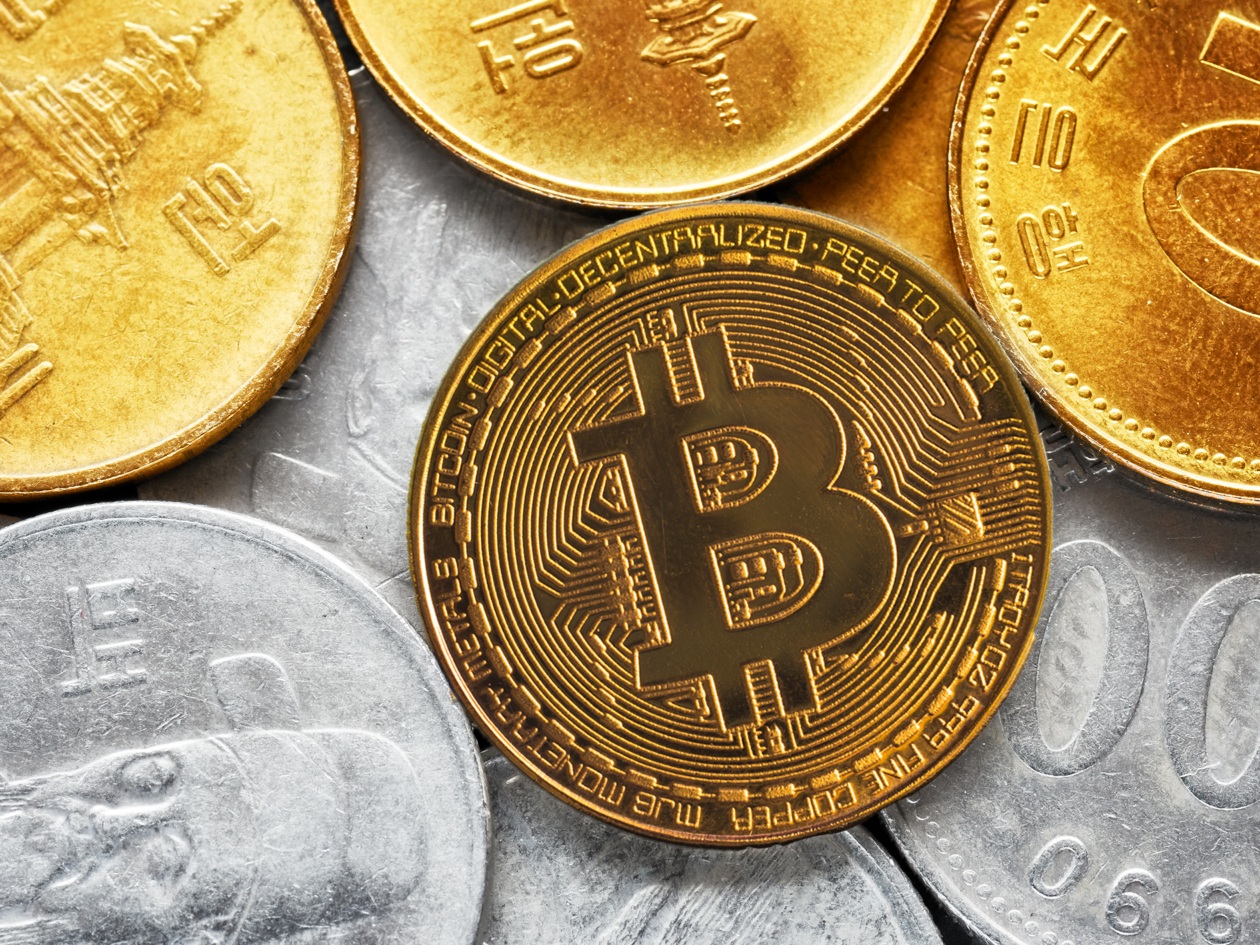South Korea is preparing regulations for digital assets, including cryptocurrency trading, which will set the country’s framework for supervising the developing and often volatile industry. But behind the scenes is a fight for power between the financial authorities.
The Financial Services Commission, the financial regulator known as the FSC, oversees the local cryptocurrency market and industry, but the central bank last month said it wants the authority to demand access to data at cryptocurrency platforms.
The squabble surfaced again on April 25 when bank and FSC representatives and lawmakers met at the National Assembly to discuss the cryptocurrency regulation bill, according to the official transcript of the meeting. FSC vice chairman Kim So-young said at the meeting the central bank’s right to data should not include cryptocurrencies, arguing that the tokens are currently not widely used for payments.
Bank of Korea Deputy Governor Lee Jong-ryeol was also at the meeting and disagreed.
“Due to the significant impact of the cryptocurrency market on the financial system, it is necessary to require cryptocurrency operators to submit documents to identify the impact on the conduct of monetary and credit policy, financial stability, and the payment and settlement system,” he said.
The FSC finally agreed to the central bank’s request for it to have access to data from crypto companies written into the upcoming legislation, saying it wants to accelerate the process for building a legal framework for cryptocurrencies. However, the dispute may well re-appear, said crypto industry officials.
See related article: Goldman Sachs, Microsoft, Moody’s, others to join new financial industry blockchain
Big market
The central bank may have a point, according to data in a March 2023 report by Statista.
South Korea has seen successive waves of what the report calls “cryptocurrency fever,” adding that around 10% of South Korea’s population of about 52 million people were invested in cryptocurrencies when Bitcoin hit a record high in 2021.
The country is one of the world’s biggest cryptocurrency markets, according to the Statista report, which said the country’s exchanges accounted for more than 9% of global crypto trading volume in August 2021.
Further, on May 19, 2021, the daily trading volume of cryptocurrencies on South Korean exchanges reached 23.7 trillion South Korean won (US$17.7 billion) or more than the value of equities traded on the country’s stock market, according to the report.
While crypto prices fell sharply in 2022 amid a series of project failures – including the US$40 billion collapse of the South Korean Terra-Luna stablecoin followed by the FTX exchange – the central bank is concerned about the future.
“The Bank of Korea wants to monitor any instances where a cryptocurrency company could undermine the stability of payment or financial systems,” said Park Sun-young, professor of economics at Seoul-based Dongguk University via email on Wednesday.
The central bank also reasoned in an April report that stablecoins, a type of cryptocurrency with a value fixed to another asset, can be used as a substitute for fiat currency and hence influence monetary stability.
Welcome
South Korea’s digital asset industry is broadly welcoming of the national initiative to bring regulatory clarity to the crypto industry, but is concerned clarity could suffer if financial authorities are themselves involved in disputes over who is in charge.
“The existing supervision [by the FSC] is sufficient for the industry, so when the Bank of Korea becomes another mother-in-law for the crypto sector, the industry may get overwhelmed [by regulations],” Kim Hyoung-joong, president of the Korea Fintech Society said in an email response to questions.
South Korea’s Democratic Party lawmaker Kim Han-gyu was present at the National Assembly meeting in support of the central bank.
According to local news outlet Seoul Economic Daily, Kim said the crypto market contributes to an increase in household debt, saying that more than 60% of total loans from South Korea’s online K-Bank in the last two years were made to users of its partner Upbit, South Korea’s largest crypto exchange.
Upbit partnered with K-Bank in 2020 as laws mandated that every exchange should have local banks provide users’ real-name deposit and withdrawal accounts for anti-money laundering purposes. Upbit users borrowed 4.9 trillion Korean won (US$3.7 billion) from K-Bank from July 2020 to the end of last year, according to lawmaker Kim.
See related article: South Korea’s cryptocurrency bill gets nod in first phase of review, may pass this year
Struggle
However, while the FSC gave some ground to the Bank of Korea in the shaping of the new law, concerns remain about the demarcation between the two authorities.
Ruling People Power Party member Yoon Han-hong said in the assembly meeting that having the central bank involved in supervision of crypto companies can leave the false impression that the country acknowledges crypto as a payment measure.
The power struggle between the two will likely continue, said Kim at the Korea Fintech Society. “The two might collide again when developing the enforcement decree that comes after completing the law,” he said.
But there is an upside to having the central bank more involved in setting crypto regulations, added Kim, saying this could be a positive for developing use of stablecoins or cryptocurrencies in payment systems.
South Korea plans to complete its crypto regulatory framework in two parts — the first has an emphasis on consumer protection and legislators are to pass the first bill into law within the first half of 2023.
The second part focuses on standardizing the issue of crypto tokens and disclosure of information to investors. The ultimate goal, according to lawmakers, is to build a transparent, even playing field for the cryptocurrency industry in South Korea.






